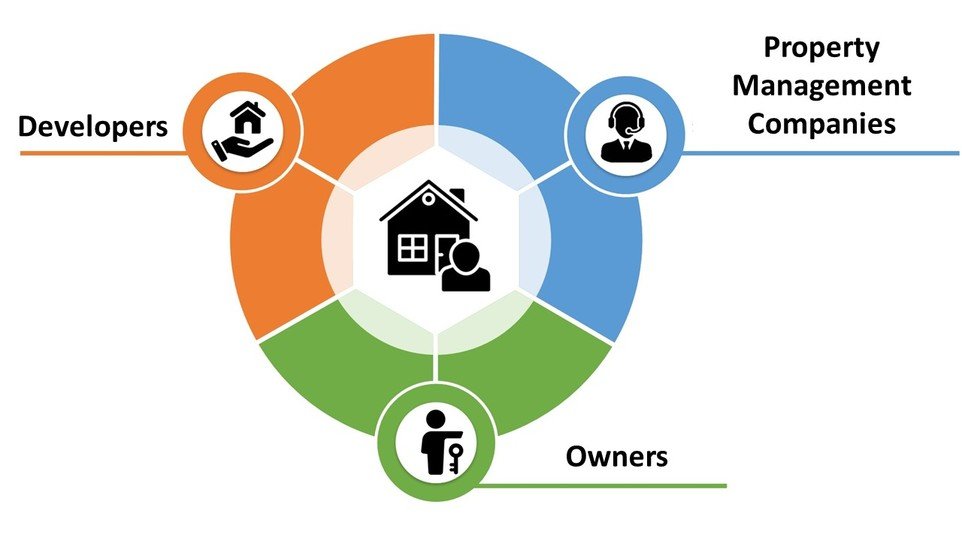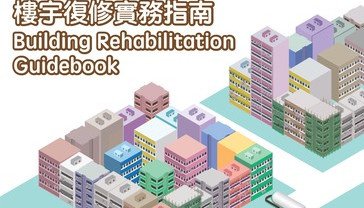Buildings, like humans, have a life cycle in which their structures and facilities age and deteriorate with time. Ignoring these indicators of ageing and disrepair can lead to escalating damage and deteriorating conditions. This not only increases repair costs exponentially, but also makes owners unwilling to assume repair responsibilities, exacerbating the disrepair problem in the long run.
Properties are important assets for owners, and it’s the owner’s responsibility to maintain both the internal and external conditions of a building. Whether they are buying a new property or already own one, owners can take proactive measures to guarantee preventative maintenance and timely repairs, thereby ensuring the safety and optimal state of their buildings. This approach not only protects the structural integrity and condition of buildings, but it also provides a safe and comfortable living environment for owners, their families, and neighbours, ultimately preserving the property's value.

To implement preventive maintenance effectively for the buildings, the active collaboration of three key stakeholders - property owners, property management companies, and developers - is indispensable to achieve "prevention is better than cure" in building upkeep.
1. Developers
Developers can establish the groundwork for preventive maintenance in buildings during both the design and construction phases, or after the building is completed, by focusing on the following four aspects:
|
•
•
• •
|
Incorporate “Design for Maintainability”elements by utilising more durable materials and designs that facilitate future maintenance work. Formulate a “Maintenance Manual” that encompasses necessary information and maintenance requirements for common areas and facilities. Clearly define the “Common Areas” to avoid future disputes over maintenance responsibilities. Strengthen the authority and responsibility of the managers to effectively execute preventive maintenance by incorporating pertinent provisions into the Deed of Mutual Covenant (DMC). |
2. Property Management Companies
Property management companies play an essential role in executing preventive maintenance. Their key responsibilities include:
|
•
• •
|
Execute maintenance work in accordance with the "Maintenance Manual". If no manual is available, they should engage building professionals to develop an appropriate manual. Engage building professionals to develop a comprehensive maintenance plan with a 10-year cycle. Establish a budget for reserve funds in accordance with the maintenance plan. This involves setting up a special fund as mandated by the Building Management Ordinance (Cap. 344) and allocating the budget over the years in accordance with the DMC. Owners are then obligated to make regular contributions in order to establish adequate financial reserves for future maintenance expenses. |
3. Owners
The successful implementation of preventive maintenance is contingent upon the active participation of owners, which includes:
|
•
•
•
•
•
|
Owners' organisations and owners' corporations bear the responsibility of overseeing the property management companies in carrying out various tasks and must also convene meetings promptly to deliberate and resolve building issues, ensuring the orderly execution of maintenance work. For older buildings lacking a "Maintenance Manual", owners’ organisation and owners’ corporation should engage qualified professionals to conduct detailed building assessments and obtain building plans and related documents from relevant government departments to compile an appropriate maintenance manual and a 10-year maintenance plan. Regular contributions to the special funds are essential to ensure that there are sufficient financial reserves to implement maintenance and repair works. Owners should maintain their building components and facilities in good working condition to prevent disturbances to others due to disrepair. In the event of water seepage or other issues, property management companies or appointed third-party professionals should be permitted to enter the units for detailed inspections and testing to identify the source of the problem. It is crucial to comply with statutory orders issued by government departments. In the event that accidents occur as a result of disrepair, all owners may be held liable. |
To change the passive mindset of "corrective maintenance" often seen among owners regarding building maintenance, the Urban Renewal Authority (URA) launched the "Preventive Maintenance Subsidy Scheme" in April 2024. This initiative aims to encourage owners to establish maintenance plans and financial reserves.










